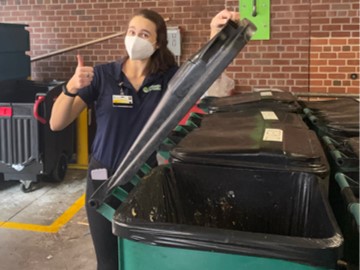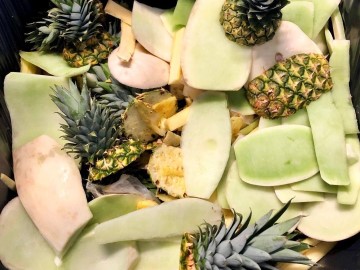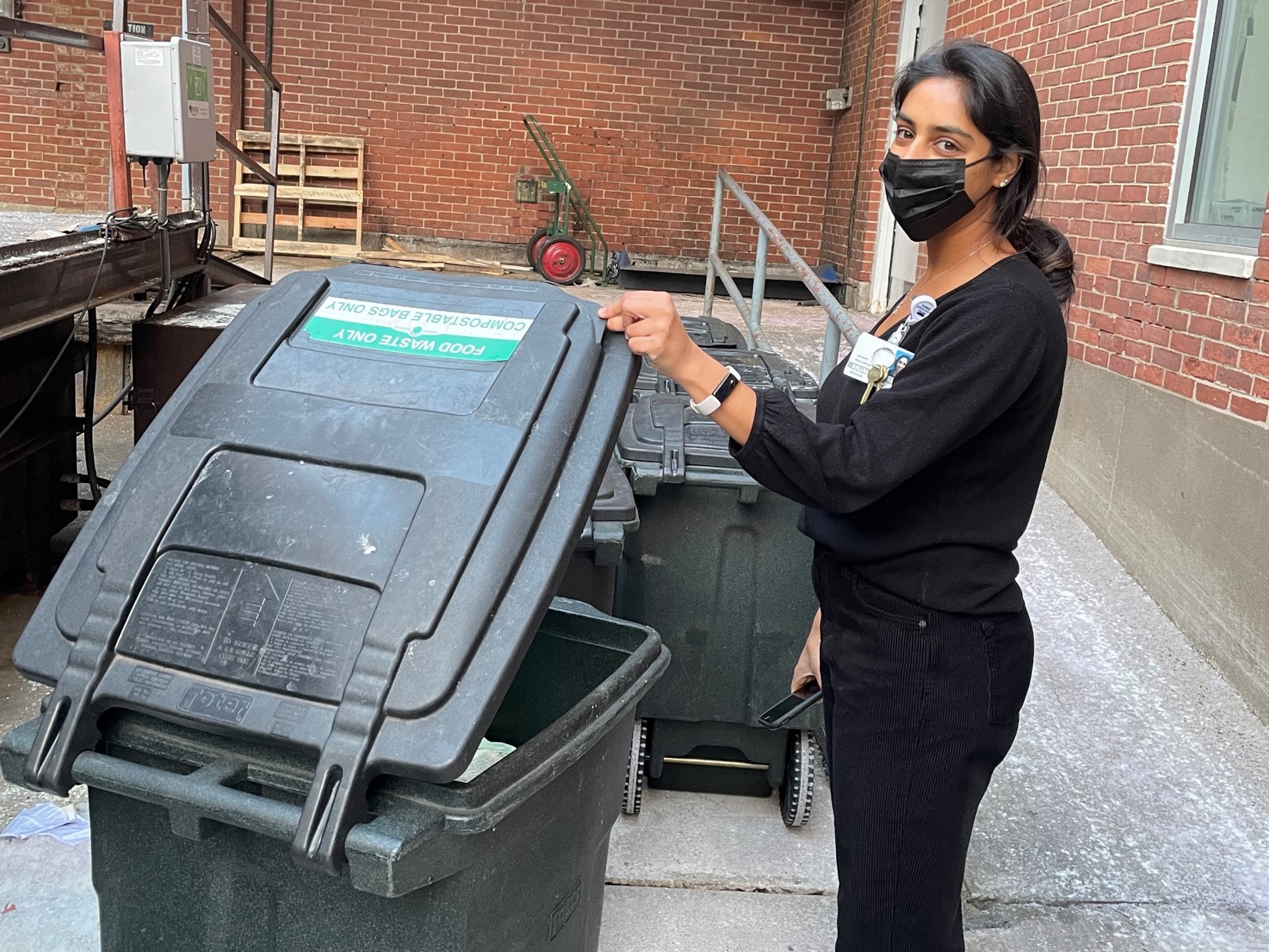How to meet the MD Food Waste Law

What is the Maryland Food Waste Law?
COMAR 26.04.13 Food Residuals - Organics Recycling and Waste Diversion implement House Bill 264/Senate Bill 483 requires certain generators within 30 miles of a composting facility to either reduce, divert to food rescue organizations, farms for animal feed operations, or compost or anaerobically digest the residuals.
More information here: Food Scraps Management
Why are food waste laws important?
According to the Maryland Department of Environment (MDE), 26% of the waste entering landfills is organic and only 18% of food waste generated is recycled. Organic waste drives the carbon footprint of landfills. Reducing food waste and increasing diversion improves business efficiency, reduces environmental impact, and can decrease food insecurity.
What is a food waste ban?
Several states have Food Waste Bans which restrict businesses from disposing organic/food waste into the landfill trash.
Maryland has joined the list of State Food Waste Laws with the passing of MD House Bill 264 in May 2021. COMAR 26.04.13 became effective in December 2022 with requirements being phased in on January 1, 2023 and January 1, 2024.
What businesses are impacted by the MD Food Waste Ban?
Phase One – Starting 1/1/2023:
Any business including schools, institutions, supermarkets, or food establishments outside of restaurants generating at least 2 tons of organic waste (food scraps) each week and within 30 miles of a composting or digestion facility must divert waste from the landfill or incineration.
Phase Two – Starting 1/1/2024:
Any business including schools, institutions, supermarkets, or food establishments outside of restaurants generating at least 1 ton of organic waste (food scraps) each week and within 30 miles of a composting or digestion facility must divert waste from the landfill or incineration.
Phase Three – Starting 3/1/2024 (exception Montgomery County due 2/1/2024):
All businesses impacted by this law will now be required to submit an Annual Business Recycling Report. When using the electronic form, facilities located in Montgomery, Howard, or Frederick County, you will be prompted to use the county’s reporting webpages. All other counties will continue with the standard report. This law now extends reporting across all counties. Be prepared to report on the following key information:
• Name of your solid waste and recycling haulers
• Total tonnage (previous CY) of solid waste (separate by waste sent to a MD permitted facility and any sent out of state)
• Tonnage and type of recyclables and the processing site/facility
Find step-by-step guidance on completing the report with this guide. If you fill out the PDF version (vs the electronic form), send the completed report to your county coordinator, not MDE.

What is organic waste?
Organic waste is any biodegradable material that comes from a plant or an animal. Common items include:
• food preparation waste
• post-consumer food waste
• food production waste
• spoiled or expired food products
• yard trimmings, and
• compostable disposables like plates and cups, paper towels, and coffee grounds and filters.
How much is 1 ton of food waste per week?

1 ton of food waste per week = (2) 64-gallon trash totes per day
Food waste estimations are heavily dependent upon industry. MDE released Maryland Food Residual Generation Factor Estimates by Industry Sector which provides simple calculations for impacted industries A few examples include:
• Hotels with over 302 guest rooms occupied each week or 286 daily visitors.
• Event Spaces with 476 seats or 4,443 visitors each week.
• Hospitals with 84 acute care beds occupied each week.
• Assisted Living Complexes with 159 beds occupied each week.
• Office Buildings and Corporate Cafeterias with 3,200 meals served each week.
• Colleges & Universities with 5,713 meals served each week.
Other industries include, but are not limited to, manufacturing, supermarkets, wholesale operations, military installations, correctional facilities, and primary/secondary schools.
Where are the compost or anaerobic digestion facilities in Maryland?
As of January 2024, according to MDE, Maryland had 6 permitted facilities for compost and 1 anaerobic digestor, with many others in surrounding states. Use the interactive map to determine the closest permitted facility.
- Frederick County: Key City Compost at Utica Bridge Farm
- Howard County: Composting Facility at Alpha Ridge Landfill (Tier 2)
- Prince George’s County: Prince George’s County Organics Composting Facility
- Harford County: Veteran Compost – Aberdeen General Composting Facilities (Tier 2)
- Caroline County: Twin Maples Compost Facility General Composting Facilities (Tier 2)
- Worcester County: Ocean Compost General Composting Facilities (Tier 2)
- Statewide: BioEnergy Devco Anaerobic Digester in Jessup, MD
What resources will be provided by the Maryland Department of Environment to help businesses comply?

Here’s a quick list of helpful tools to ensure compliance with the law:
What else can be done do to be in compliance?
Reduce and Colect Food Waste
Reduce waste at its source. Use effective collection methods, donate edible food, and explore composting or digestion for inedible scraps. Our guide offers a blueprint for businesses to not only minimize food waste but also contribute to a healthier planet.
